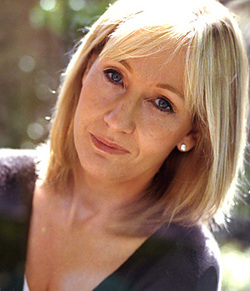 Image courtesy of drsimpson.net.
Image courtesy of drsimpson.net. Your writing will improve exponentially if you get into the habit of using specific nouns and vigorous verbs. Nouns and verbs are the most important parts of speech—think of them as the chief building blocks—and generally the best nouns and best verbs are specific and vigorous, respectively. A noun names a person, animal, place, thing or abstract idea. In the context of a sentence, it states who or what is involved in the action or who or what is being described. The importance of nouns explains why they are typically the first words children learn.
To see how general nouns can weaken your writing, consider the following sentence, which a zoologist might write:
The animal can reach a top speed of 79 mph.
Animal is much too vague. It calls to mind no image, a vague image or an image different from the one the zoologist intends. And the reader is left wondering what animal moves at that speed. Is it the cheetah? But then again, don’t cheetahs max out at 75 mph? The below revision clarifies matters:
The gyrfalcon can reach a top speed of 79 mph.
The above revision not only clarifies which animal is under discussion. It also puts the cheetah in its place as simply the fastest land animal, outpaced by the gyrfalcon (which is in turn outpaced by the fastest animal of all, the peregrine falcon, which reaches 242 mph as it dives toward its prey).
Specific nouns are usually better than general ones. But not always. Let’s return to our zoologist. Let’s imagine she writes:
An animal is a multicellular living thing that differs from a plant by having cells without cellulose walls, by lacking chlorophyll and the capacity for photosynthesis, by requiring more complex food materials such as proteins, by being organized more complexly, and by having the capacity for spontaneous movement and rapid motor responses to stimulation.
Here our zoologist is justified in using a general term like animal because she seeks to supply a definition that encompasses animals as diverse as vertebrates, mollusks, arthropods, annelids, sponges and jellyfish. In short, she needs an incredibly inclusive term. Animal qualifies.
Specific nouns are not only typically better than general ones. They also reduce wordiness. Okay, so let’s pick on historians, for a change. A member of their field might write:
In a long, angry piece of writing the prime minister accused the neighboring country of ceasing to patrol the border, thereby allowing guns to pour into his war-torn nation.
The underlined phrase contains five words: the general noun piece, the adjectives long and angry, and the prepositional phrase of writing, which functions as an adjective and culminates with the general noun writing. The historian has used five words (and seven syllables) to say what could have been said in one word (and one syllable):
In a screed the prime minister accused the neighboring country of ceasing to patrol the border, thereby allowing guns to pour into his war-torn nation.
A simpler type of wordiness—one or more adjectives joined with a general noun—can also be eliminated with a specific noun: For instance, large book can be changed to tome.
Whichever parts of speech are implicated, wordiness is a sin committed daily. Verily I say unto you, Except for rare occasions, thou shalt not use many words when one will do. (Our historian is also guilty of using the hackneyed war-torn.)
Now that we’ve examined nouns, let’s turn our attention to verbs. There are two types: action and linking. An action verb—surprise, surprise—conveys action. A linking verb such as to be expresses a state of being, functioning like an equal sign, linking the subject either to another noun that re-identifies it or to an adjective that describes it. Because they express no action, linking verbs weaken your writing when used often. So, for the purposes of this installment of this column, when I say verb, I mean action verb.
If a noun provides information on who or what is acting or being acted upon, a verb describes the action and supplies the power that drives the sentence. The difference between a vigorous verb and a weak one is the difference between a punch and a tap. Even if you need to describe a gentle action, you should probably do so forcefully:
She placed her half-parted lips against his.
Placed will not do. It does not have the delicate, romantic connotation the scene requires. Nor does it have much vigor. Here’s an improvement:
She brushed her half-parted lips against his.
Brushed may not be perfect, but it’s better than the original verb. It’s also better than a vigorous verb a clumsy writer might use: dragged.
When the action is not gentle or delicate, a vigorous verb is needed as well. A novelist, describing a highway scene, might write:
An eighteen-wheeler sped past, loud like some heavy, sluggish rocket.
Sped isn’t bad. But it’s not great. A more vigorous verb is called for, one that conveys the speed particular to a vehicle that because of its size has more momentum than a much smaller vehicle traveling at the same speed would have (momentum, you will recall from physics class, is calculated by multiplying mass and velocity):
An eighteen-wheeler hurtled past, loud like some heavy, sluggish rocket.
Let’s say the same novelist describes a character speeding through a tunnel in a Mustang GT:
The ceramic walls of the tunnel moved past in a white blur.
Moved is general, weak and boring. Zoomed would be better but cliché. The below revision uses a verb that is vigorous and original and that captures the play of light:
The ceramic walls of the tunnel glinted past in a white blur.
Like specific nouns, vigorous verbs often reduce wordiness. When they do, the combination of concision and force creates a particularly vigorous effect. Let’s say a National Weather Service employee writes:
The storm gave birth to tornadoes that spread across the state, ripping up trees and blowing off roofs.
One vigorous verb could be substituted for three words—the verb gave, the noun birth and the preposition to--channeling more force in a smaller space, amplifying the power:
The storm spawned tornadoes that spread across the state, ripping up trees and blowing off roofs.
Arguably, the NWS employee should also substitute more vigorous and original verbs for spread, ripping and blowing (the later two are participles, but let’s not get pedantic). That said, he will improve the sentence significantly by simply making the change in the above revision.
Just as there’s a time to use general nouns, there’s a time to use weak verbs. Let’s return to our zoologist. Let’s say she wants to discuss the various ways in which humans locomote. She might introduce this topic with a sentence like this:
Homo sapiens walk in various ways.
She might follow this sentence with one that lists types of walking, using a vigorous verb for each:
Depending on their age, physical fitness or inclination on a given day, they will, for example, saunter or sashay or stride or plod or stomp.
In this sequence of sentences, our zoologist has skillfully used not only several vigorous verbs but a weak verb as well.
Specific nouns and vigorous verbs help make your writing concrete, which is generally preferable to it being abstract. Concrete words--eighteen-wheeler, falcon, stomp—appeal to the senses and enable the reader to imagine what’s being discussed. Abstract words--transportation, life, perambulate—refer to relatively vague ideas and concepts, do less to stimulate the imagination and carry less emotional impact.
Concrete comes from a Latin word meaning grown together, hardened. Abstract comes from a Latin word meaning removed from or removed from concrete reality. Remove your reader from concrete reality too often, and you will remove her interest in your writing. Ezra Pound advised poets to “go in fear of abstractions.” His advice should be heeded not just by poets but by anyone who puts pen to paper or, to update the image, fingertips to iPad.
---------------------------------------------------------------------------
[1] The only way around learning to write well is to have contractors or subordinates write for you. Just make sure they know what they’re doing.


 RSS Feed
RSS Feed